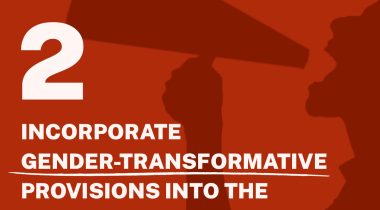
Nick Shaxson ■ The UK Patent box – will it come back in through the back door, accompanied by Germany?

We’ve just written a blog about the UK’s nasty, disingenuous and hypocritical patent box regime, and how it has successfully been spun as a “watering down” of the rules under pressure from Germany.
The blog points out that the joint UK-German announcement, which is quite short, is cryptic. It explicitly states that “IP regimes” (which is what patent boxes are) are out: well and good. But, as we asked, will an equivalent to the Patent Box be brought back in through the back door? Sources have alerted us to the fact that there seems to be some skulduggery involved here.
Take a look at this section of the joint statement. If you’re not a corporate tax specialist you don’t need to look too closely: to skim-read it is to understand that it’s as clear as mud.
“Uplift of Qualifying Expenditure – where related party outsourcing or acquisition costs are incurred, which do not constitute qualifying expenditure, companies will be able to obtain a maximum 30% uplift of their qualifying expenditure (subject to a cap based on actual expenditure) included within the formula; the 30% uplift refers to the overall expenses for both, outsourcing and acquisition costs;”
There is no further explanation. The “30% uplift” part seems to mean that if, for example, you have an expenditure cost of £1 million, you can set £1.3 million against tax. But now what is “qualifying expenditure,” and how is that defined? What is “the formula?” What is this all about, really? And why would they not spell these things out in the joint statement?
This potentially looks like a case of continued special treatment for patent income. We just don’t know yet how it would work or how severe it is, though we’ve been informed (by someone who should know) that we ought to be quite concerned.
Our German colleagues are very unhappy about all of this. They have just published an open letter to German Finance Minister Wolfgang Schäuble, expressing serious concerns about the latest announcement (a shaky web translation of the TJN-Germany letter is available here, it describes the potential for Germany to be “showering” unnecessary tax subsidies on the world’s multinational corporations.)
Among other things, they note that the basic principle of the patent box is being preserved: that profits from the use of patents are going to be taxed at a lower rate, and the size and amount of qualifying profits may be unlimited:
“This is not suport for R&D, but the state showering tax credits without need over profitable businesses.”
(Read more about these arguments here.)
They see in here the potential for Germany’s centre-right government, which has had some success in persuading the world’s media think that it’s been opposing the patent box regime, to sneakily join in the game.
Germany’s Spiegel magazine in September published an article (web translation here) saying Germany was wanting to introduce a special tax regime for intellectual property, at a tax cost of some three billion Euros.
From a UK perspective, it’s unclear whether this joint UK-German statement is an improvement or a further step in the race to the bottom. From a German perspective, it is unequivocally damaging.
It could potentially be so damaging that it will drive a stake through a vital organ of the OECD’s entire BEPS flagship policy to reform international tax.
Related articles

Pope Francis, 1936-2025

Vulnerabilities to illicit financial flows: complementing national risk assessments

A tax justice lens on Palestine

New article explores why the fight for beneficial ownership transparency isn’t over
UN Submission: A Roadmap for Eradicating Poverty Beyond Growth
A human rights economy: what it is and why we need it

Strengthening Africa’s tax governance: reflections on the Lusaka country by country reporting workshop

Do it like a tax haven: deny 24,000 children an education to send 2 to school

Urgent call to action: UN Member States must step up with financial contributions to advance the UN Framework Convention on International Tax Cooperation


